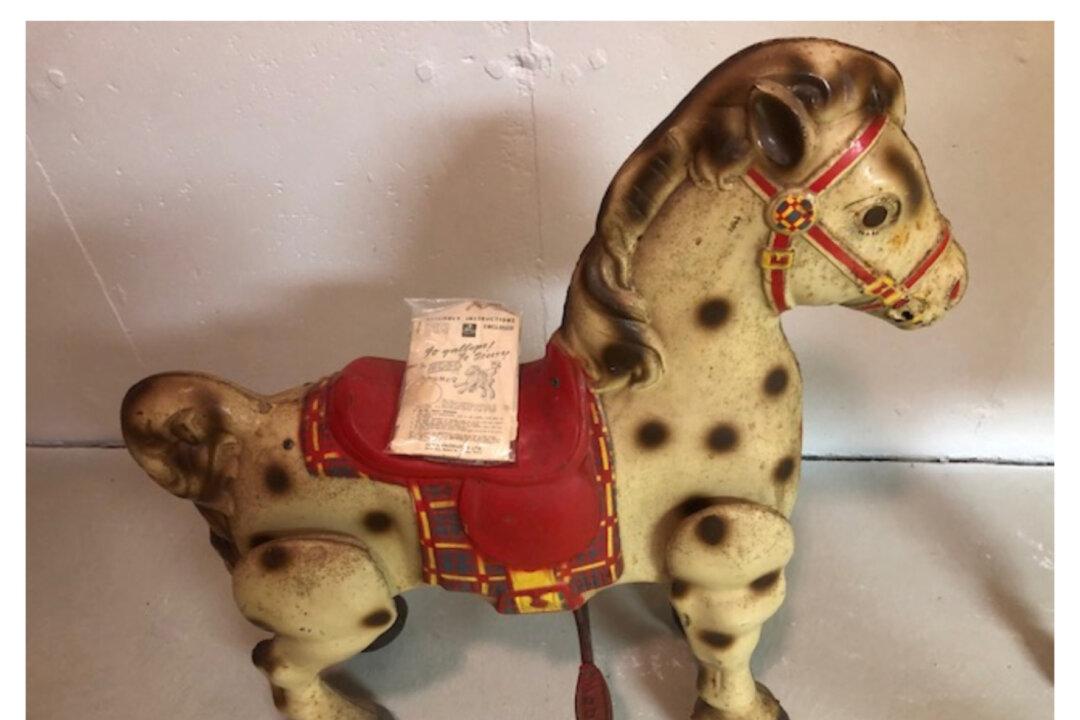By Helaine Fendelman and Joe Rosson
From Tribune News Service
Dear Helaine and Joe: Might you be able to help us determine the approximate value of this Mobo horse? We would also like to know a little of its history. Thank you for your help, K. P.

Dear Helaine and Joe: Might you be able to help us determine the approximate value of this Mobo horse? We would also like to know a little of its history. Thank you for your help, K. P.